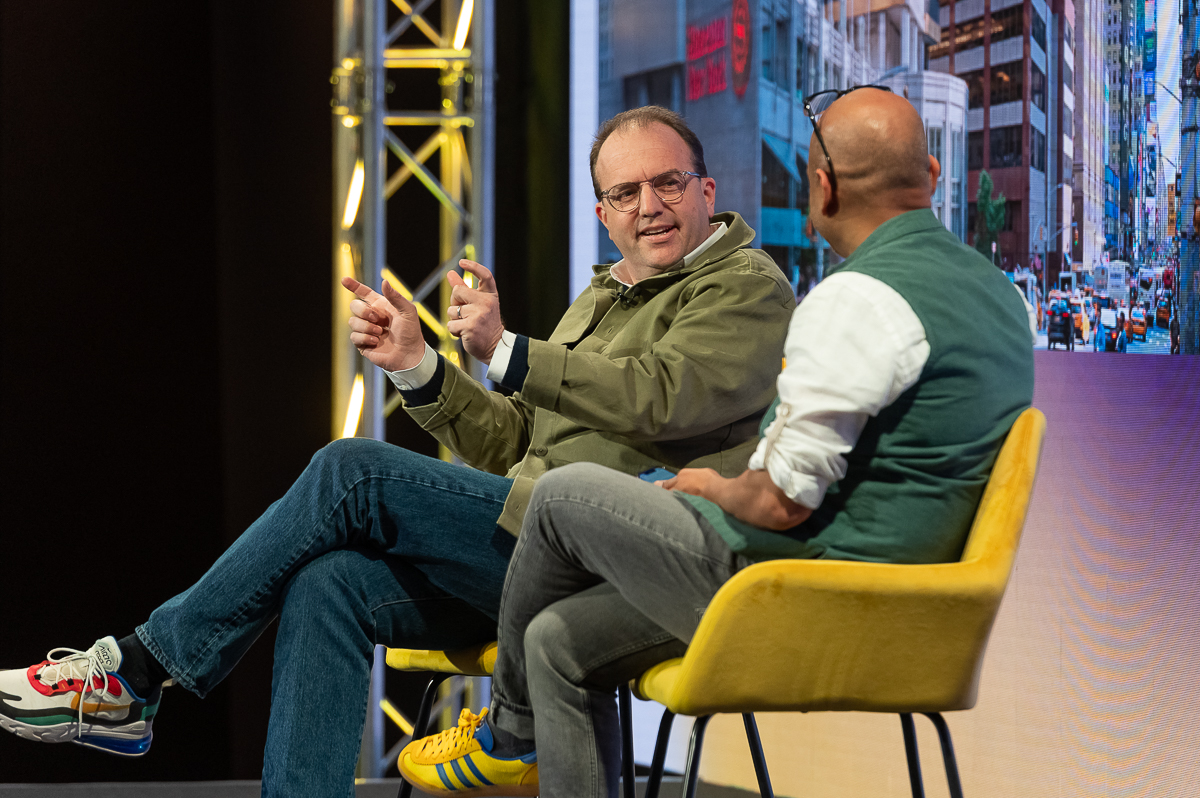Skift Take
MCR is using the expertise from its growing hotel enterprise to inform the development of its own growing hotel tech companies. What better strategy to solve some of the industry's biggest problems and make money doing it?
MCR invested heavily in hotels and hotel tech during the pandemic, and the company is not stopping yet.
“When everyone else was frozen in panic, we made a lot of terrific investments in hotels and software companies, hotel-related investments,” said Tyler Morse, chairman and CEO of MCR, during an onstage interview by Skift CEO Rafat Ali at the Skift Future of Lodging Forum on Wednesday.
The company bought 70 hotels during the pandemic and is closing on four next week, with another 12 in the pipeline, Morse said.
The investment during the pandemic made MCR the third-largest hotel owner in the U.S. The company now owns 150 hotels — including properties like the TWA Hotel, the High Line Hotel and the Pasadena Hotel and Pool — in 37 states and has 10,000 employees, he said.
Despite the financial hit that hotels took during the pandemic, Morse believes the investment will pay off.
“If you look at what happened in 9/11, or even farther back in the early 90s, and then in the global financial crisis, the hotel business always recovered — and then some. So it’s the same concept,” he said.
MCR acquired property management system Stayntouch in 2020 and hotel housekeeping software Optii in 2021, as Skift previously reported.
MCR has also made six investments in other software companies and has a pipeline of another four or five more, Morse said at the forum.
Morse said previously that the software investment is all about modernizing the hotel industry, which largely runs on old, inefficient, fragmented systems.
“I describe hotel technology as a carrier pigeon and a stone tablet having mated,” Morse said at the forum. “It is brutal. It is simply awful. When I built the TWA Hotel, I had to source 65 different software systems, and then I had to stitch them all together. And none of the vendors care what the owner wants; they just want to sell you more software.”
MCR had been a customer of Stayntouch when it acquired the company.
“Stayntouch was the best product that we used … because Stayntouch thinks of the world as 24 units of inventory per day, instead of one unit of inventory per day,” he said, adding that MCR wants to offer part-day use of hotels as an option for business travelers, for example, who land at the airport early and need a space before a meeting.
After millions in investment, Stayntouch late last year released an expanded product meant to help clients complete a range of operations tasks all on one platform.
Optii is continuing to work on strengthening the product and adding more customers. The software company earlier this year released a data analysis capability meant to help customers make better decisions based on key metrics.
While the MCR software platforms run on artificial intelligence, Morse believes that that modern technology is not going to fully replace hotel jobs anytime soon. Generative AI may come for corporate hotel jobs a bit sooner, though, he said.
“Artificial intelligence does not make beds. It does not make breakfast. It doesn’t make lunch. It doesn’t make you a drink in the afternoon. And it certainly doesn’t make your life any more fun. It might make it marginally more efficient,” Morse said.
And, the hotel innovation that Morse is most excited about: fake grass.
“The technology in fake grass now is spectacular. And it is better for the environment because you don’t have to water it … We’re putting fake plants and fake grass everywhere.”
Have a confidential tip for Skift? Get in touch
Tags: future of lodging, hotel tech, hotel tech stack, hotels, mcr development, skift future of lodging forum, skift live
Photo credit: Tyler Morse is the chairman and CEO of MCR. Russell Harper
